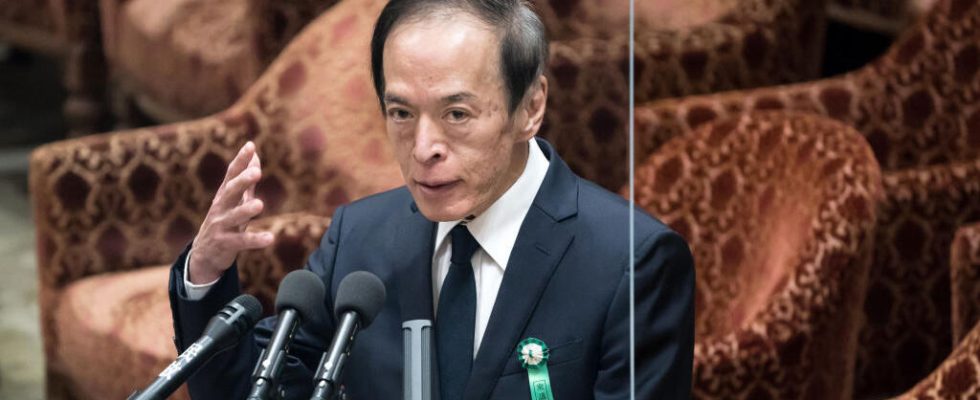Will the new governor of the Bank of Japan, Kazuo Ueda, change the monetary policy led by Haruhiko Kuroda for a decade? This policy of interest rates around 0% to overcome deflation, the general fall in prices which had undermined the country since the 1990s, is against the current of the other major central banks which, for the past year, have been tightening the conditions credit to fight inflation? Analysts in Tokyo expect gradual adjustments in the coming months to this costly strategy.
From our correspondent in Tokyo, Frederic Charles
Kazuo Ueda is an economics professor trained at MIT in Boston. He is the first non-senior governor of the Bank of Japan. Some hope he will be less influenced by the government. And will dare to start reducing the destabilizing effects of ultra-accommodative monetary policy. Since 2013, the Bank of Japan’s assets have more than quadrupled. Until exceeding the annual value of the Japanese GDP.
This resistance of the Bank of Japan to follow the global trend of rising interest rates has the effect of causing the yen to fall to its lowest level in 32 years against the dollar, reducing the purchasing power of households. And to increase the cost of imports.
However, inflation is waking up in Japan. In January, it reached 4.2%, a level unprecedented for forty years. Mainly because of soaring energy prices since the war in Ukraine. The bank expects a sharp decline in inflation this year. Because wage increases and growth in Japan are not sufficient to achieve a stable price increase of 2% set by the government.
Kazuo Ueda could make monetary policy less accommodative by adjusting the bond yield curve control that distorts market mechanisms.
The Bank of Japan is not helped by the government, which spends lavishly, refuses structural reforms to stimulate the economy and finance the aging of the population.
► Read also : A new governor at the head of the Bank of Japan for a new monetary policy
